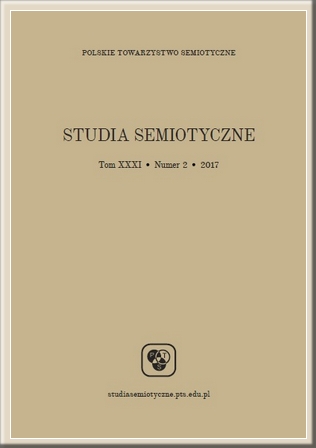Abstract
DOI: http://doi.org/10.26333/sts.xxxi2.06
According to a well-homed view in linguistic semantics, deontic logic and logic of agency, some ‘ought’ sentences, like ‘Kate ought to write the report’, are ambiguous between the socalled agentive sense as when Kate is the agent of writing the report, and the non-agentive, or evaluative sense as when, in the light of some norm or things being ideal, the proposition that Kate writes the report would come out true. Within this approach to the semantics of ‘ought’, the ambiguity in question is not due to any semantic ambiguity of the word ‘ought’, but the ambiguity traced to Kate writes the report. We may call the view in question, after Schroeder, the agency-in-the-prejacent theory, or APT for short. APT’s explanation of ambiguity has been put under heavy criticism by Mark Schroeder’s 2011 influential paper. Schroeder tried to undermine APT by exposing its central theoretical drawbacks, their being: (i) that APT badly overgeneralizes because if ambiguity is in Kate writes the report, then it should equally well be preserved under the non-agentive interpretation of ‘Kate ought to write the report’, but it is not, and (ii) that APT also undergeneralizes, since it ‘inscribes’ the same ambiguity as observed in ‘Kate ought to write the report’ to a sentence that lacks it, e.g. ‘Bill ought to kiss Lucy’. I argue that both the ‘overgeneralization problem’ and the ‘undergeneralization problem’ are harmless for the criticized view, since Schroeder’s two central arguments against the respective problems are seriously defective. Also, the third problem identified by Schroeder, that APT cannot accommodate the deliberative sense of ‘ought’, is mistargeted. I argue that identifying the salient property of the deliberative ought is crucial for assessing whether APT is able to accommodate it or not, and that Schroeder failed to recognize this properly.
References
Belnap N., Horty J. F. (1995). The Deliberative Stit: A Study of Action, Omission, Ability and Obligation. Journal of Philosophical Logic, 24, 583–644.
Broome, J. (2013). Rationality Through Reasoning. Chichester, UK: Wiley-Blackwell.
Brandom, R. (1994). Making It Explicit. Cambridge, MA: Harvard University Press.
Cappelen, H., Lepore, E. (2005). Insensitive Semantics: A Defense of Semantic Minimalism and Speech Act Pluralism. Oxford: Blackwell Publishing.
Cariani, F. (2013). ‘Ought’ and Resolution Semantics. Noûs, 47(3), 534–558.
Chrisman, M. (2012a). ‘Ought’ and Control. Australasian Journal of Philosophy, 90(3), 433–451.
Chrisman, M. (2012b). On the Meaning of ‘Ought’. In R. Shafer-Landau (Ed.), Oxford Studies in Metaethics (vol. 7, pp. 304–332). Oxford: Oxford University Press.
Finlay, S., Snedegar J. (2014). One Ought Too Many. Philosophy and Phenomenological Research, 89(1), 102–124.
Finlay, S. (2014). Confusion of Tongues: A Theory of Normative Language. Oxford: Oxford University Press.
Fintel, K. von (2006). Modality and Language. In D. M. Borchert (ed.). Encyclopaedia of Philosophy. Second Edition. Detroit: MacMillan Reference USA. http://web.mit.edu/fintel/modality.pdf
Glüer, K., Wikforss A. (2009). The Normativity of Meaning and Content. In Edward N. Zalta (Ed.). The Stanford Encyclopedia of Philosophy (Spring 2016 Edition). https://plato.stanford.edu/archives/spr2016/entries/meaning-normativity
Glüer, K., Wikforss A. (2010a). Es brauch die Regel nicht. Wittgenstein on Rules and Meaning. In D. Whiting (Ed.). The Later Wittgenstein on Meaning (pp. 148–166). Basingstoke: Palgrave Macmillan.
Glüer, K., Wikforss A. (2010b). The Truth Norm and Guidance: A Reply to Stegliech-Petersen. Mind, 119, 757–761.
Hattiangadi, A. (2007). Oughts and Thoughts. Rule-Following and the Normativity of Content. Oxford: Oxford University Press.
Higginbothan, J. (2006). Truth and Reference as the Basis of Meaning. In M. Devitt, R. Hanley (Eds.). The Blackwell Guide to the Philosophy of Language (pp. 58–76). Oxford: Blackwell.
Horty, J. F. (2001). Agency and Deontic Logic. Oxford: Oxford University Press.
Horty, J. F. (2012). Reasons as Defaults. Oxford: Oxford University Press.
Klimczyk, J. (2018) ‘Ought’, Ownership and Agentive Ought. Remarks on the Semantic Meaning of ‘Indexed Ought’. Studia Philosophiae Christianae, forthcoming.
Klimczyk, J. (MSa) Normativity That Matters. On the Meaning of Practical ‘Ought’ Sentences.
Klimczyk, J. (MSb). Why the Basic Problem is not a Problem? Miller, A. (2010). The Argument from Queerness and the Normativity of Meaning.
In M. Grajner (Ed.). Truth, Existence and Realism. Frankfurt, Heusenstamm, Paris, Lancaster, New Brunswick, NJ: Ontos Verlag.
Ridge, M. (2014). Impassioned Belief. Oxford: Oxford University Press.
Shackel, N. (2014). A Problem for the Unity of Normativity. Analysis, 74(3), 404–411.
Schroeder, M. (2011). Ought, Agents and Actions. Philosophical Review, 120(1), 1–41.
Wedgwood, R. (2006). The Meaning of ‘Ought’. In R. Shafer-Landau (Ed.), Oxford Studies in Metaethics (vol. 1, pp. 127–160). Oxford: Oxford University Press.
Wedgwood, R. (2007). The Nature of Normativity. Oxford: Oxford University Press.
Williams, B. (1981). ‘Ought’ and Moral Obligation. In B. Williams, Moral Luck (pp. 114–123). New York: Cambridge University Press.

